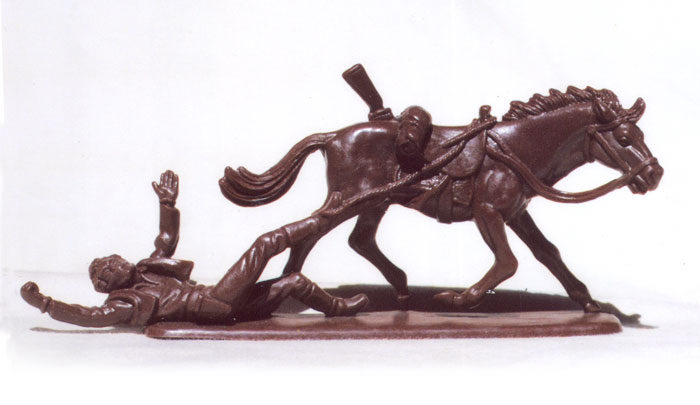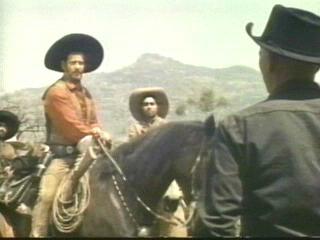 The film has a lot to live up to of course, as it was a Western (in both senses) remake of Akira Kurosawa's classic The Seven Samurai. The story made an easy transplant to the Wild West and no wonder; Kurosawa, long considered one of the most "Western" Japanese directors, was a great admirer of John Ford.
The film has a lot to live up to of course, as it was a Western (in both senses) remake of Akira Kurosawa's classic The Seven Samurai. The story made an easy transplant to the Wild West and no wonder; Kurosawa, long considered one of the most "Western" Japanese directors, was a great admirer of John Ford.  The American remake has a great cast, most of whom had the bulk of their careers ahead of them - look down the list and, aside from Brynner, you'll see names that would pop up continually in tough-guy cinema throughout the 60s and 70s: McQueen, Bronson, Wallach, Coburn.
The American remake has a great cast, most of whom had the bulk of their careers ahead of them - look down the list and, aside from Brynner, you'll see names that would pop up continually in tough-guy cinema throughout the 60s and 70s: McQueen, Bronson, Wallach, Coburn. 
Despite the film's reputation as a big success (and indeed, it spurred several sequels), a 1960 review tells a different story, lamenting, "Greeted by a flurry of inattention from the critics, this western has been hastily remaindered into the neighborhood circuits in the hope that it will soon get profitably lost in the Christmas rush. 

The loss will be bearable: Seven is not a great picture—not nearly as good as the Japanese Magnificent Seven (TIME, Dec. 10, 1956), the brilliant episode of chivalry, 
directed by Japan's Akira (Rashomon) Kurosawa, from which it is adapted. Nevertheless, it is the best western released so far in 1960, a skillful, exciting, and occasionally profound contemplation of the life of violence."
The truth in my opinion though was that this was nearly a great movie getting a bit spoilt by the beginning when Bucholz follows the group to the village. 
 One of the most rememborable films ever as regards the western.Bryner gave a great great performance.
One of the most rememborable films ever as regards the western.Bryner gave a great great performance.
No comments:
Post a Comment